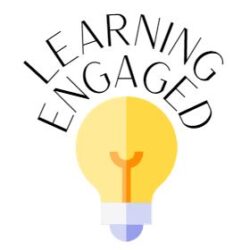(This post may contain affiliate links.)
http://amzn.to/2rub5fp
Willingham, D. T. (2009). Why don’t students like school?: A cognitive scientist answers questions about how the mind works and what it means for the classroom. San Francisco: Jossey-Bass.
“Middle school students don’t like school. They just have to survive these years and then things will get better.” Comments like these have been repeated by teachers for years. There is no surprise when students don’t like school, teachers are just happy when the students basically do what is asked of them and they don’t cause any problems. We have to ask ourselves though, is this the correct attitude that teachers should have?
As a reading teacher, I have spent countless hours scouring resources to find ways to motivate and engage students. I was never okay with the concept that some students just don’t like school. Many times though, my research would come up lacking or new ideas I would attempt would work in the short term, but were not a fix. When I was introduced to Why Don’t Students like School? by Daniel Willingham, I immediately wished I had come across this book when I was a classroom teacher. Written by a cognitive scientist Willingham’s ideas on education make more sense than most things I have read written by experienced educators. Apparently, in all of my hours of research, I should have branched out.
Not only is this book an easy read, Willingham organizes the book based upon a few concrete ideas that will forever change the way I teach. To begin, Willingham explains that factual knowledge is the foundation for all learning. Students must be taught the basic facts in order to think critically, comprehend, apply background knowledge, and even pass standardized assessments. Often teachers miss the teaching facts concept because they are worried about lack of time and getting in higher order thinking skills.
Willingham continues his explanation by talking about memory. More specifically, “why do students remember everything that’s on television and forget everything I say?” Basically, we remember what we think about, not what we want to remember or try to remember. Good teachers plan their lessons based upon ways to get students to think about what they want them to learn. This, as explained by Willingham, includes telling stories, making connections, invoking emotion, and repetition.
Let’s Practice: Study the set of letters below for 2 minutes and then cover them up and write down what you can from memory.
ADN
AAB
CPB
SCB
SFB
IES
PNI
QA
How did you do? What if I spaced the letters differently?
A
DNA
ABC
PBS
CBS
FBI
ESPN
IQ
A
Easier that time? Willingham gives more examples like this in his book.
Willingham also explains that we should treat students differently because they are different, but this should be based upon the relationship and experience that a teacher has with the student. This is the best way to understand what a student needs and how they learn. If we just try to use a formulaic approach because this is what research says, then we aren’t really differentiating.
Daniel Willingham’s book has challenged the way educators approach teaching. The traditional concepts that teachers are continually taught are picked apart and explained in simplistic detail in a way that encourages teachers to change their mindset. Normally, an outsider’s interpretations of education are not received well because they just do not get it. There are many elements of being a classroom teacher that are hard to understand if you are not a part of it. Willingham has changed this norm and understands the battles faced by educators.
Any teacher could read this book and walk away with practical ideas to incorporate into their teaching. That is what educators are wanting. When teachers find time to read current research to stay up to date on changes in their field, they want to be able to implement what they learn immediately and not have to conduct further research. All educators should read this book. I will definitely use what I have learned from Willingham as I teach.


